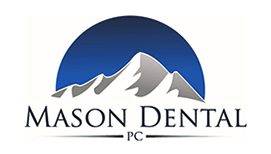
This month marks an annual tradition steeped in rich history. The first Thanksgiving was said to be a meeting between the American colonists and Native Americans of the Wampanoag tribe. While Americans celebrate the holiday with turkey and other delights, the first feast probably looked much different. Not only that, but the oral health and dental care of these ancestors was incredibly different.
Continue reading to learn more about what these ancient people ate and how they took care of their teeth.
The Food of the Pilgrims
To make it through the long voyage from England to America, the first settlers needed to preserve their food. There were no refrigerators back then and canning wouldn’t become a reality for another 100 years!
Because of this, the most reliable method for preservation was salting and drying. Jerky, dried fruit, and hardtack (a hard survival food made from salt, flour, and water) were mainstays aboard the ship. All of these foods cause significant damage to teeth and are known to cause cavities.
The Food of the Wampanoag
In contrast, the Wampanoag were hunters and gatherers who knew the land well and were able to provide for themselves. Maize (the ancient cousin of modern corn), beans, squash, fish, and venison were all stables of their diet.
These fresh and wholesome grains, proteins, and vegetables ensured that the teeth of the Wampanoag were set up for good oral health.
Pilgrim Dental Care
The first toothbrushes didn’t begin to appear in England until 1780, so the pilgrims relied on chewsticks (much like the Native Americans at the time) and even used charcoal or salt as an abrasive to clean their teeth using water and a cloth. These methods were crude, but it was all they had.
How the Wampanoag Took Care of Their Teeth
The Native Americans had great oral hygiene for the time period. This is especially impressive considering there were no toothbrushes back in that time. However, the Wampanoag had other methods of dealing with plaque and bad breath. They used frayed twigs called to clean their teeth and chewed on herbs like sage, and mint to freshen their breath.
Now that you’ve seen how these ancient people used to take care of their teeth, you might be a bit more thankful for modern dentistry. Toothbrushes, toothpaste, dental floss, and trained experts in tooth care are all things you may take for granted. So, next time you see your dentist, thank them for their contribution to your oral health!
About the Practice
At Mason Dental, your team of highly trained and professional dentists is ready to see you. Their focus is on patient comfort and providing treatment plans that are tailor-made for your unique situation. They use the latest dental technology to make every visit stress-free and absolutely painless. To schedule an appointment, call (802) 362-1099 or visit the website to delve into other services they provide.
